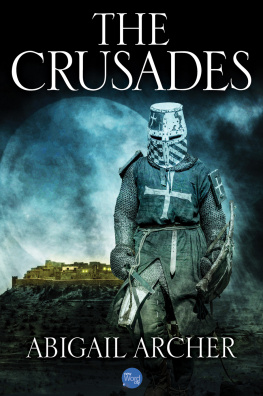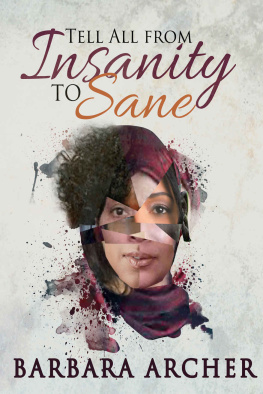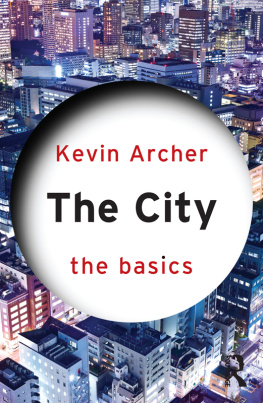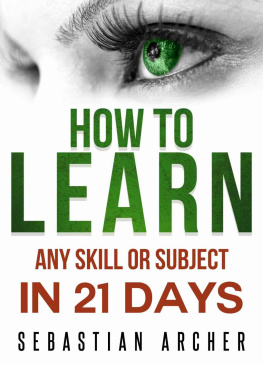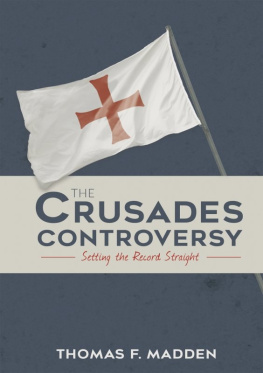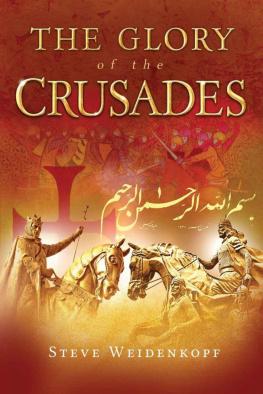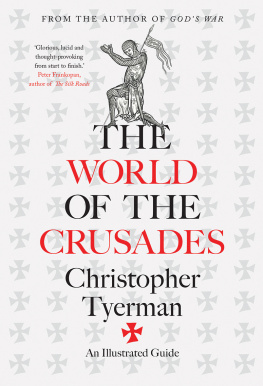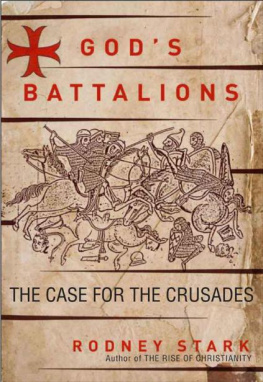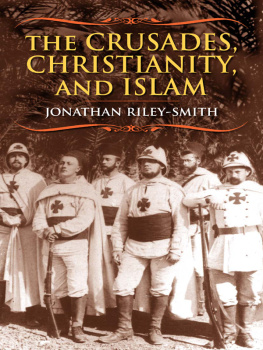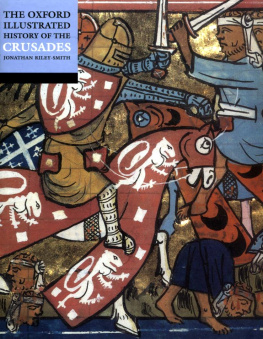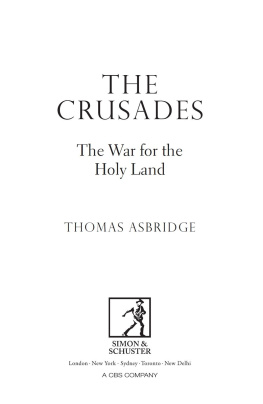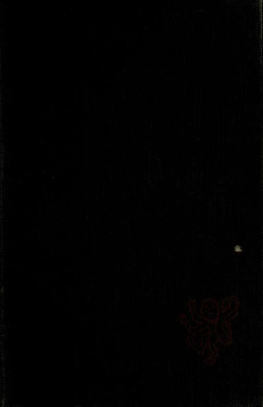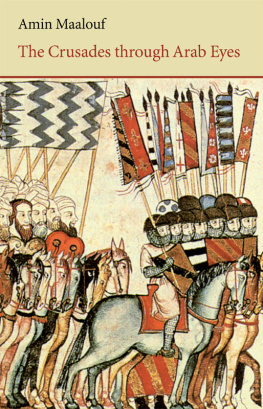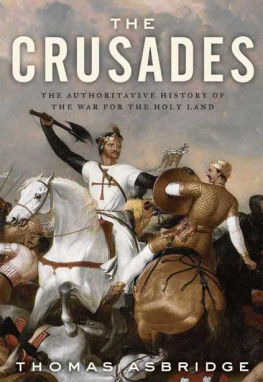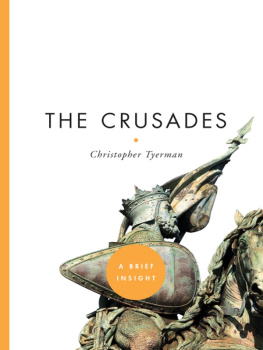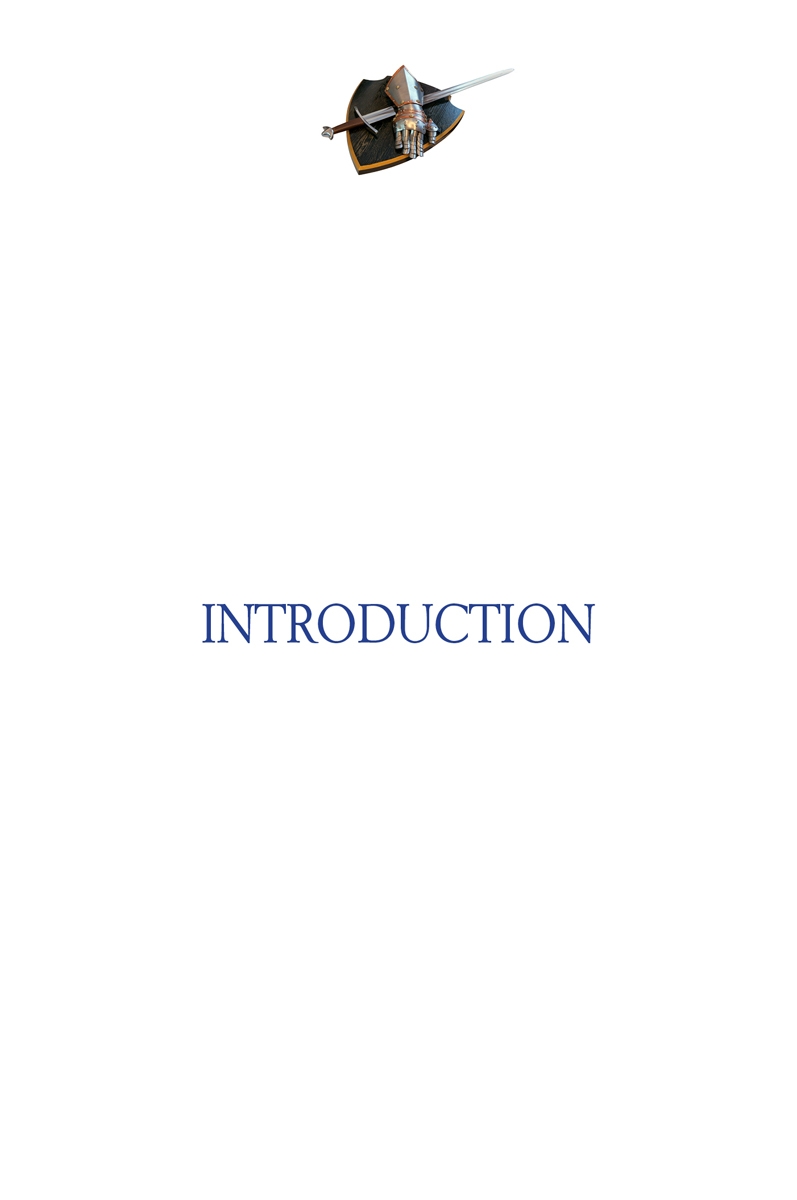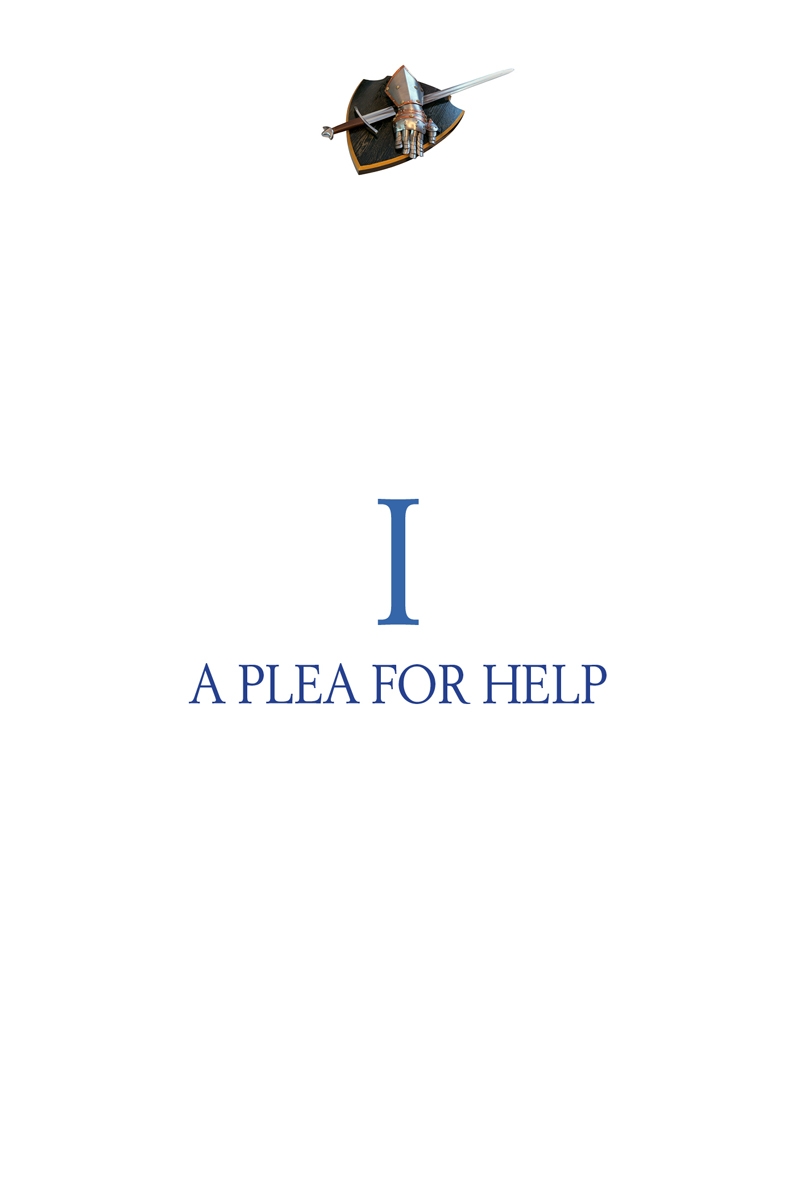Viewed across the gulf of nine centuries, the Crusades seem almost incomprehensible. What blend of religious fervor, hatred of infidels, restlessness, and sheer cupidity led Europeans of 1100 A.D. to venture thousands of miles across unknown lands and dangerous seas to win back the Holy Land? Why did they persist for 200 years, despite repeated setbacks, only to end by losing all they had gained? What did our forebears learn from their holy wars, and how did the Crusades change the world?
The intriguing story is replete with colorful characters from Pope Urban II to Peter the Hermit ; the gallant Richard Lionheart and his great foe and tutor in chivalry, the Sultan Saladin ; from Duke Godfrey of Bouillon , too pious to accept the title King of Jerusalem, to Enrico Dandolo , the wily Doge of Venice, who hijacked an entire Crusade for his own nefarious purposes. Over the centuries, crusaders witnessed and participated in - the evolution of warfare, the changing concept of knightly virtue, and the transformation of society from feudal fiefdoms to nations and empires. The story of the Crusades is a reminder, too, of the horrors wrought in the name of religion: the cities sacked, the temples defiled, the people massacred, all in the name of God. Like the Inquisition , the Crusades are seen by many Christians today as an exercise in fanaticism, a shameful episode in which the teachings of Christ were twisted to justify the horrors perpetrated on innocents. That judgment is accurate, but not the whole story.
There were at least eight Crusades; some historians count nine, with a long list of minor forays in between. Oddly, the term crusade was not used until the seventeenth century, long after the last knight had hung up his sword and shield. Instead, they were called holy wars, or pilgrimages, campaigns to drive the heathen from the Holy Land, and the crusaders called themselves Gods knights, or soldiers of Christ. They saw themselves as purifiers, expelling the infidels who had defiled sacred shrines, bringing the word of God to ignorant people who would be damned to Hell if they didnt convert. But in reality, Muslim society at the turn of the first millennium was far more civilized than European Christendom, and the invaders learned more than they cared to acknowledge from those they called heathen.
The First Crusade , sent by Pope Urban II, quickly captured Christian footholds along the eastern coast of the Mediterranean Sea in present-day Israel, Lebanon, Syria, and Turkey. In seesaw battles over the next two centuries, Muslim warriors recaptured these outposts, and new Crusaders took them back. As Urbans successors called other Crusades closer to home - to expel the Moors from Spain, to defeat the Albigensian heresy in southern France, even to defeat papal enemies in the dukedoms of northern Europe - new Crusades to the Holy Land became less and less effective, and as they failed, crusading fervor ebbed. Long after the last crusader stronghold fell in 1291, popes were still beating the drum for new holy wars well into the fourteenth century. By then, hardly anyone was listening. The era had ended.
Still, the legacy of the Crusades would endure, a lasting symbol of the power of faith for Western Christians - and of papist atrocities for their Muslim victims. The Crusades influenced the way wars were fought and people were governed; they shaped the institution of knighthood, introduced the concept of chivalry, and changed ideas of what it meant to live a good life and to be a good man and generally broadened European horizons. The Crusades were among the great forces that ended the High Middle Ages, ushered in the Renaissance, and forever changed the nature of Western civilization.
For centuries, the holy city of Jerusalem, the most sacred spot on earth to Christians everywhere, had been under the control of the Muslims Mohammedans, as some called them, or more commonly, Saracens . (The Muslims, in turn, referred to Europeans as Franks.) Romans had held the city at the time of Christs crucifixion, and the first Christian emperor of Rome , Constantine , had built the Church of the Holy Sepulcher at the site of Christs resurrection, making Jerusalem a magnet for faithful pilgrims.
But in 639, the city was captured by the Arab caliphate , and Muslims had held it ever since. While they, too, believed in one God and agreed that both Jesus and Moses had been holy men, they considered Mohammed the greatest of Gods prophets. They also deemed Jerusalem sacred, as the place where the Prophet had ascended to heaven, and they made pilgrimages to its shrines, just as Christians did. Muslim rulers tolerated Christian pilgrims as they did followers of the various sects of their own faith, but it was an uneasy peace.
Early in the eleventh century, however, the Egyptian caliph who owned the lands that included Jerusalem adopted a stricter form of Islam and ordered all Christian churches destroyed. When they reached Jerusalem, Christian pilgrims found their holy shrines defaced or demolished.
At the same time, a wilder and more warlike people began to supplant the Arabs in the East. The Seljuq Turks , spreading west and south from their base near the Aral Sea , took Jerusalem in 1071 and began to impose heavy taxes on travelers from the West and to harass Christian pilgrims. After a decisive victory at the Battle of Manzikert in August, the Turks and their even wilder allies also began to take over lands belonging to the Byzantine Empire , whose Eastern Orthodox priests had recently split from the Roman Catholic Church. This rich empire, with its gleaming capital city Constantinople, occupied much of the territory now included in Greece and Turkey. But the Seljuqs were also taking fertile farmland and grazing pastures in Anatolia , south of the Bosporus , which provided much of Constantinople s food supply. Although the Emperor Alexios considered the Byzantine Church equal to the Roman Church, he was concerned enough about the invasions to send to Rome for help from Pope Urban II.
When Urban took the papal throne in 1088, he ruled a shaky Church. Although it commanded the powerful and unquestioning faith of nearly all medieval Europeans - from peasants and tradesmen to feudal lords and kings - it was so divided by doctrinal and disciplinary problems that Urban had to contend with an antipope on his own turf in Rome. While he soon rallied the Church behind him, he still had to wrest powers from Europes fractious rulers and find a way to deal with the rogue knights who roamed the land, pillaging and abusing the peasantry. Urban boldly excommunicated the adulterous King Philip I of France and fought with the Holy Roman Emperor Henry IV over who had the right to appoint bishops and cardinals.
When Urban received Alexioss letter, he saw the appeal for several hundred knights to fight the Turks as a prime opportunity a chance to achieve several important feats at once by persuading some of Europes rulers to summon their unruly knights to come to the aid of their fellow Christians in the East.
If the mission could be framed not just as help for Alexios, but as a war to win the Holy Land and restore Christs glory, it would not only enhance the Churchs authority and power to command, it would prove that the pope, not the holy Roman emperor, was the real leader of the Church. It would also solve the problem of the rogue knights and strengthen the Churchs power over the unruly feudal princes and produce a magnificent trophy: the recovery of the tomb of Christ, the most revered shrine in Christendom. It might also reunite the grateful Byzantine Christians with Rome, leaving Urban, of course, as the ruling pope.

